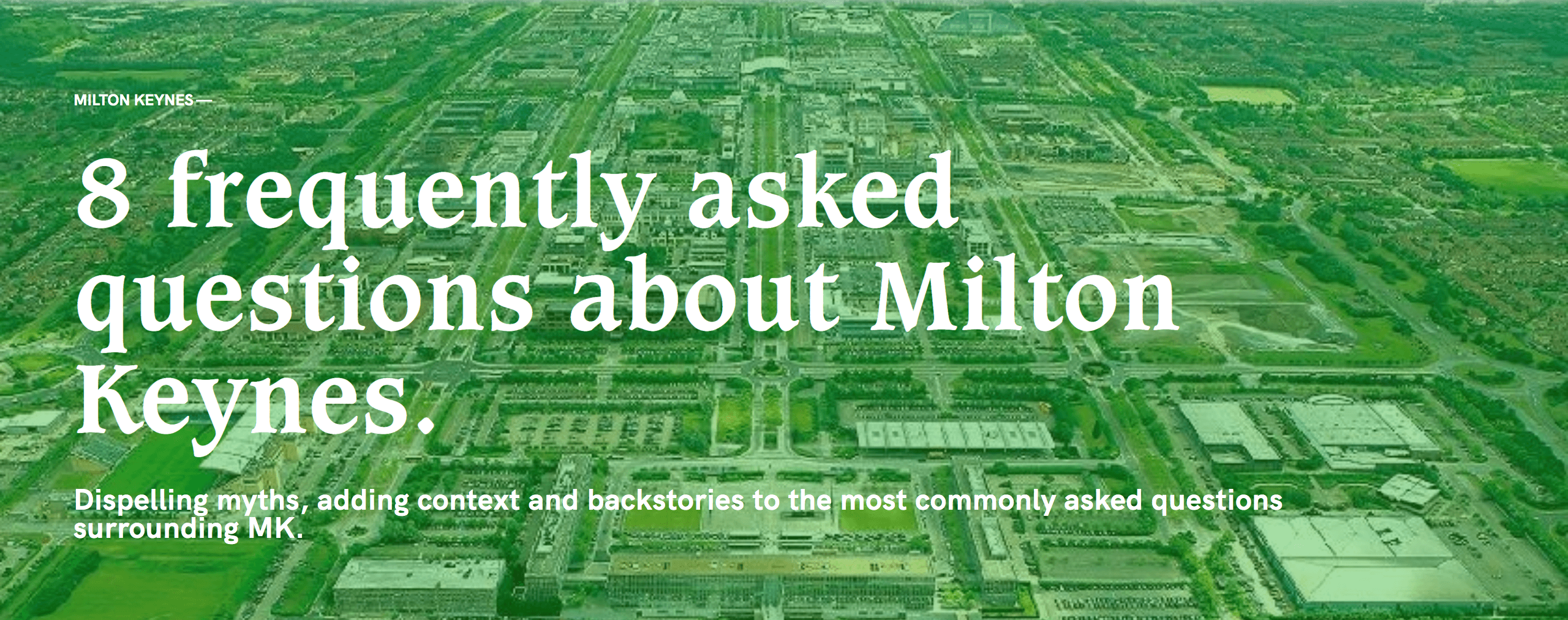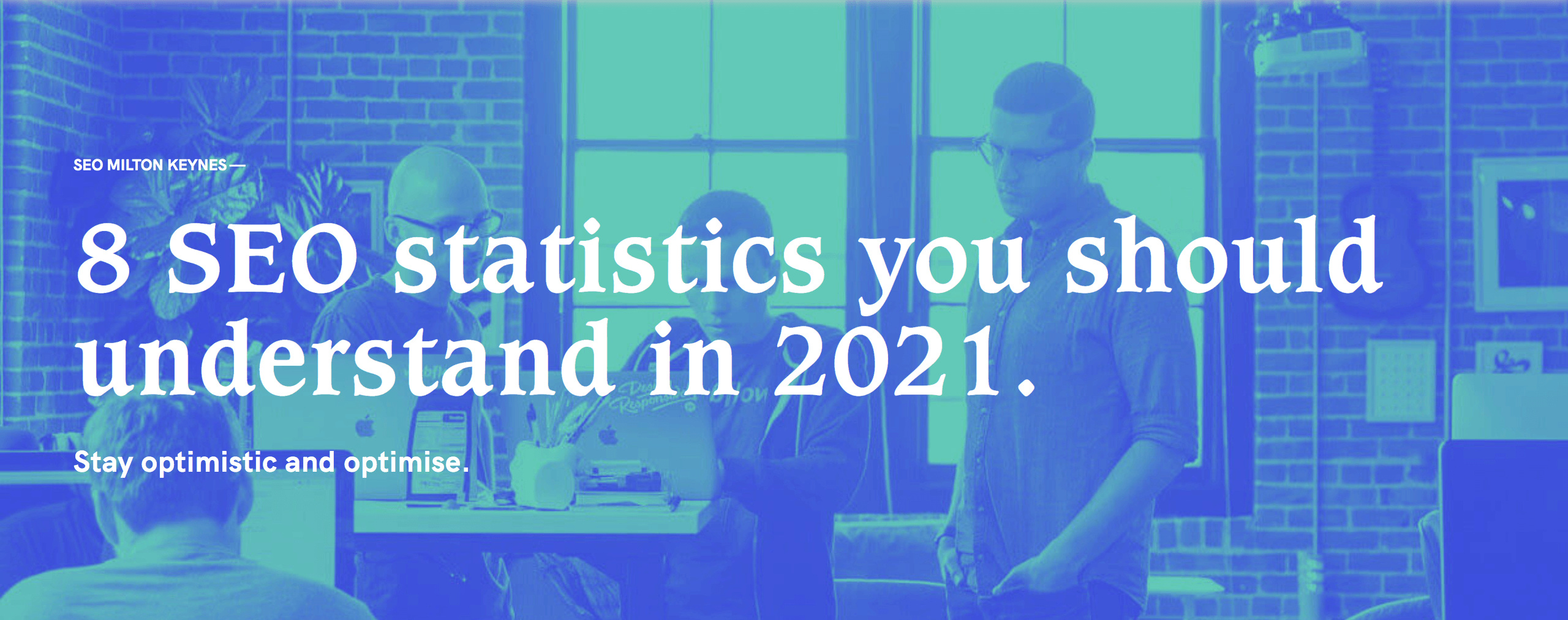Easy fixes for your business site.
For small businesses, Search Engine Optimisation is the best investment of time and money that your business can make.
Your efforts have a long lasting effect, so any cost is returned over the lifetime of your online efforts. And typically the effects of correct optimisations are hard to reverse, so as long as your efforts are all above board, also known as ‘white hat’ tactics, you can be sure that your search engine ranking will only improve.
This is especially fruitful for a small or young company, as their online presence will grow in parallel to their actual business. As with most things, consistency is key, so while motivation may peak and trough, discipline is required to continue your efforts for the long term.
In this article, I’ve broken down the best areas to spend your time and money to see maximum results. The majority of the points listed are actually free to resolve if you do it yourself, but the impact you will see will return dividends. So let's dive in.
Need some support?
✔️ Improve your Google ranking
✔️ Understand your site performance
On-Page SEO
On-page SEO details everything that can be viewed from the website.
There is a long list of things to optimise on-site, most of which can be actioned by the business owner if they have access to their website. It just needs a bit of time and focus, but there’s nothing too technical for this section. I’ve compiled a few of the most common issues I come across when optimising on-site for clients.
Headings
Your headings in each page should be structured from H1-H6, with H1 being the main title of the page, sub headers as H2, short sentences H3, paragraphs H4, and so on.
There should only be one H1 per page. This heading tells Google, and your customer, what the page is all about. Therefore it ideally should include your desired keyword for that page.
For example, on our SEO Services page, the H1 is 'SEO MILTON KEYNES'. We’ve even set this as a smaller text above the more eye catching title, as it plays a more important role for optimisation than for capturing user’s attention.
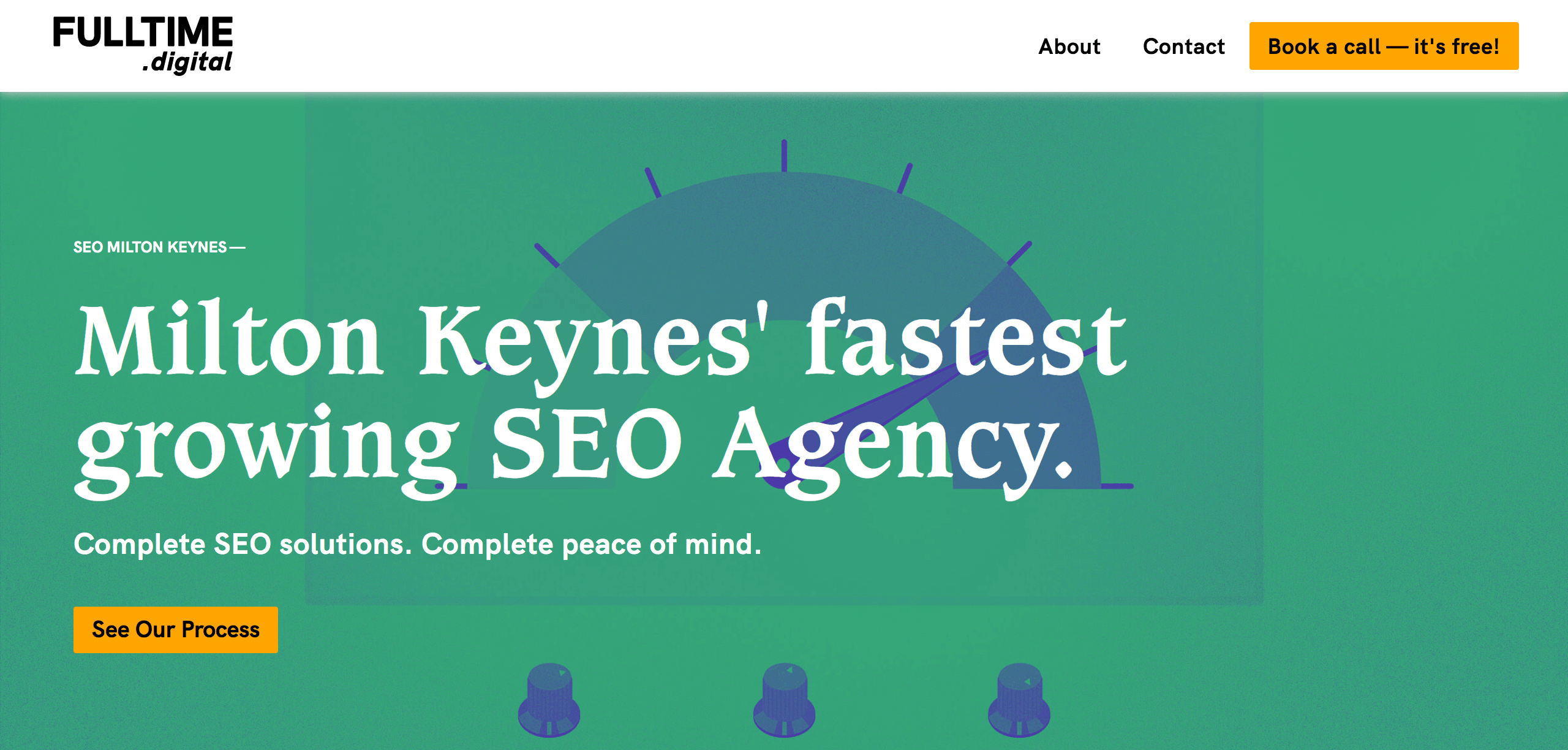
Title Tags
The Title Tags define the title of each web page. The page’s Title Tag is displayed on the search engine results page (SERP), so it’s important to make it clear for your users, as well as for the search engine displaying your page on their results page.
It’s a common error that occurs on our clients’ sites, and a very easy fix. Normally it will match up with the H1 title of the web page, ideally with your desired keyword included, while being enticing and professional for your users.
You should be aware that there is limited space on the results page to display your title tag. Aim for it to be no longer than 55 characters. Keep it short, sweet and clear.
Meta Descriptions
These are the short descriptions of a web page, normally a summary that is displayed on the search engine results page (SERP). As it is normally displayed below the Title Tag, it can influence your click through rate, so you should be thoughtful and considered with this valuable results page space you’re given.
Similar to Title Tag, space is limited for this, so while it can technically be any length, if your description is too long it will be truncated, meaning it will be cut short at some point with ‘…’ replacing the overrunning text.
Aim for no more than 160 characters and no less than 50. This gives you some extra space to be descriptive about the web page, with an aim to provide value to the user and drive clicks onto the page.
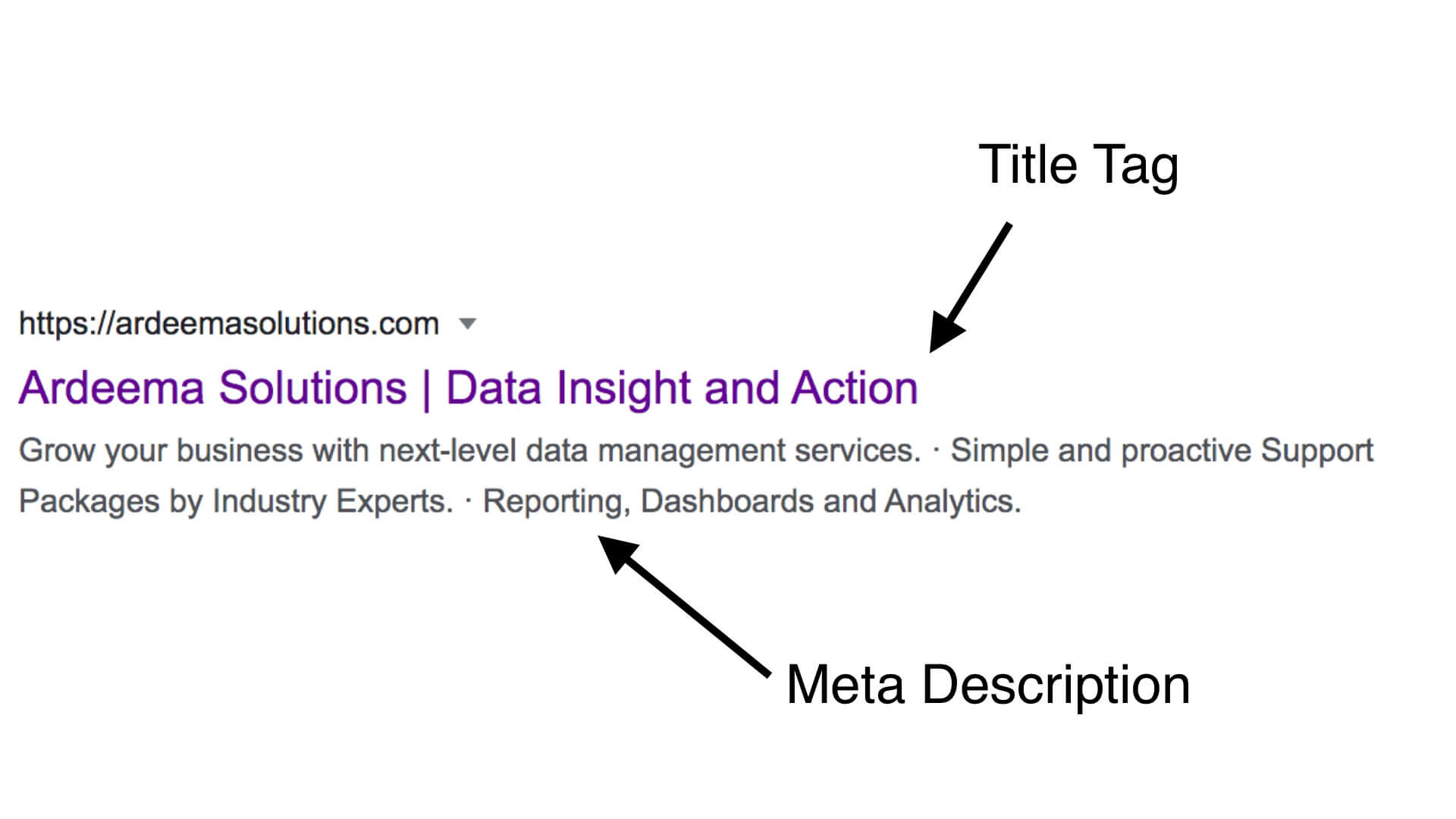
Alt Tags
Alt tags are a basic description added to images. It helps Google understand what is displayed, but also can be used by visually impaired users who can listen to the description if they can’t see the image.
Normally this is very easy to add to assets on your website and is highly recommended to add. Just find where your images and videos are stored, and there should be an option to add a description.
Local SEO
Having a Google Business Profile (formally known as Google My Business or GMB) listing verified and optimised is one of the best strategies to improve your local presence. If someone local is searching for products or services that match your business, Google will present this on their map pack results.
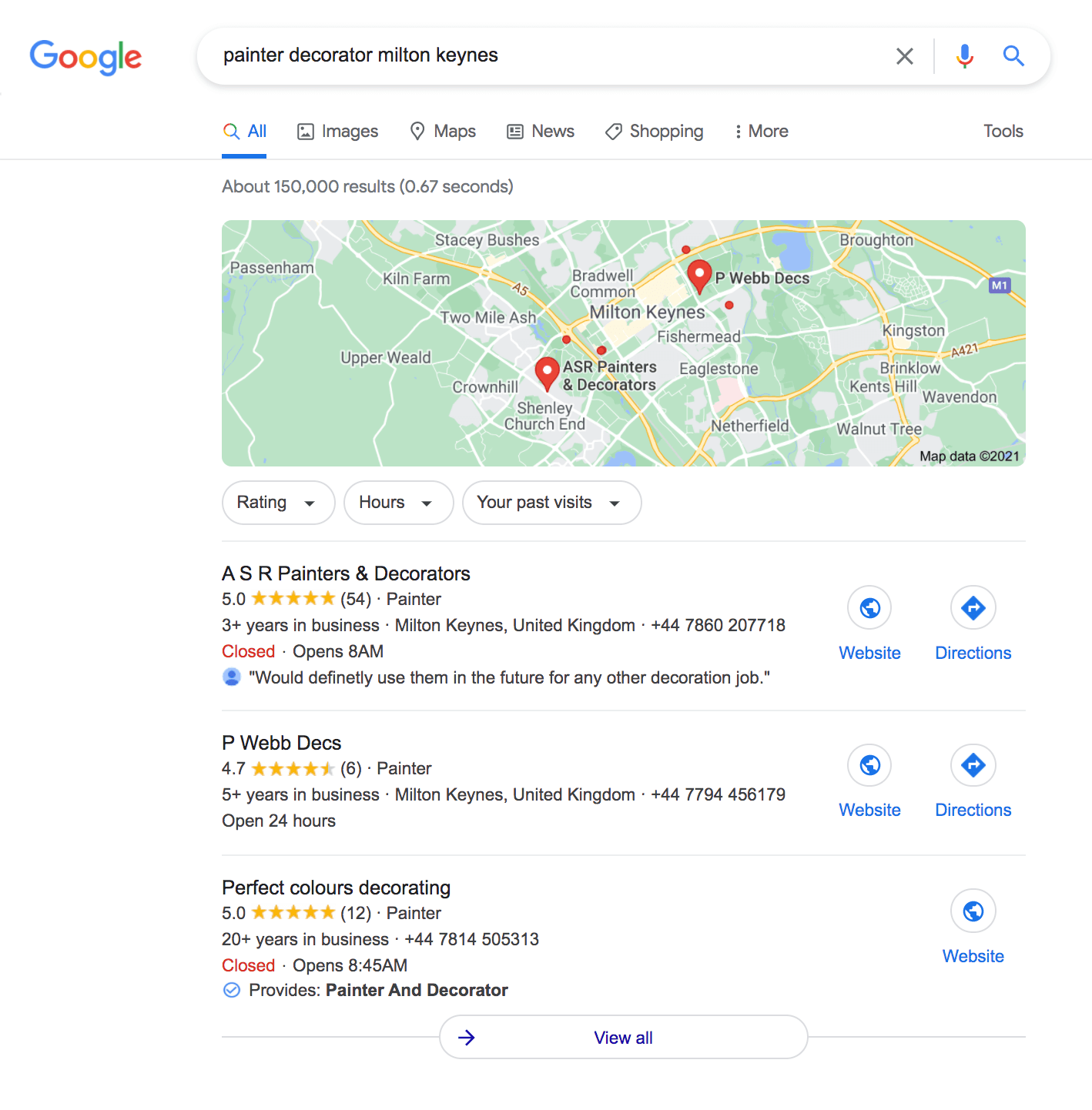
This is a great way to increase organic traffic, local exposure and keep your customers informed on your activities, as you can publish posts and photos similar to a social media account.
It also displays a large amount of useful information for your business, such as contact number, booking/reservation link, Google reviews, and more. You can read in much more detail about local SEO in our SEO in Milton Keynes article, which details what it is, why you need it and how to optimise it.
You can also access our GBP Checklist here. Setting up your GBP listing is one of the most effective strategies to gain local exposure so be sure to get this completed as a priority.
Content
The content on your site is arguably going to make the difference between a successful website and a useless one. Not only are you pages going to be targeting your ideal keywords, phrases and long tail keywords, but in providing relevant and useful information to people searching for this, you will build trust with potential clients, and Google will recognise this with a few key factors such as user’s time spent on page, number of pages viewed, bounce rate and so on.
Also regularly posting new content in the format of blog articles shows that your website is regularly updated, and is making a visible effort to provide value to Google’s users. Keyword research and competitor analysis will educate you on where opportunities lie, and keep you informed when deciding what content to create.
A great tool for content research is Answer The Public. by searching for your desired keywords, the results show you the most frequently searched terms relating to your keywords. Collecting this data is a great way to inform you on the objective of your article and what questions you’re trying to answer.
Google Trends is a service provided for free to give you insight and data into popular searches.
You shouldn’t expect results in 1-3 months. SEO is really a long term game, never ending with the need to consistently add new content, build backlinks by producing high quality content that other sites will link to, and optimising the general performance of the site.
Other Worth Mentions
Page Speed
It’s common knowledge that your page speed has a direct impact on your Google ranking. Most users expect a site to load within 3 seconds, and the bounce rate will skyrocket for every second waiting.
Great design is pointless if your site doesn’t actually perform. Remember this when choosing your web designer/developer, because if they can’t deliver a fast performing site, it effectively makes any amazing design pointless as no one will actually see it.
To check your page speed, you can use Google’s page speed tool.
Look at the diagnostics to see what fixes you can do to improve the load speed, but the biggest factor will likely be your hosting provider. Don’t be cheap when selecting your hosting package. Sure you can get hosting from £3 per month, but it’s the slowest possible option. If you’re unsure, ask the provider for some advice based on the size of your website.
SSL Certificate
Again this is pretty common knowledge, but you’d be surprised how often I go to a site and Google gives me a warning saying that the site is unsafe due to not having an SSL certificate.
They’re cheap, easy to integrate and remove the ‘unsafe warning from your website for users, which undoubtedly will make users’ rethink visiting your website, especially if you’re expecting them to make a transaction through your site or provide some private information.
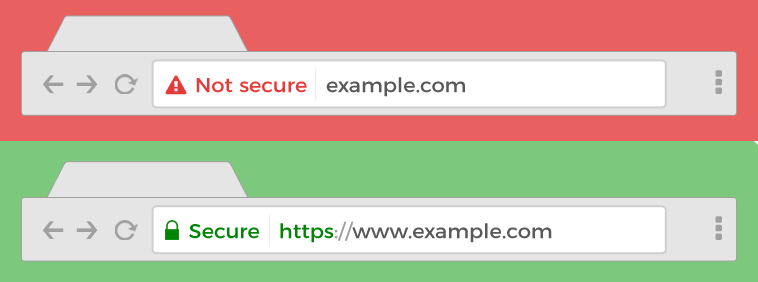
Summary
There are literally hundreds of ways to optimise your site, but this covers a handful that you can fix yourself and will have measurable results. Google themselves have indicated there are in excess of 200 ranking factors.
If you’re interested in a site audit, we offer a comprehensive analysis that will detail all errors occurring across the site, why they are happening and how to fix them. Of course we offer the optimisations as part of our services but that is up to you.
If you're up to the task, take some time to sit down and get through all the points mentioned in this article. Your site health will improve drastically and you will be rewarded with increased traffic.
FULLTIME.digital build and optimise websites specific to your needs and your business. Want to get serious about your website?
Get in touch and talk to the team.

